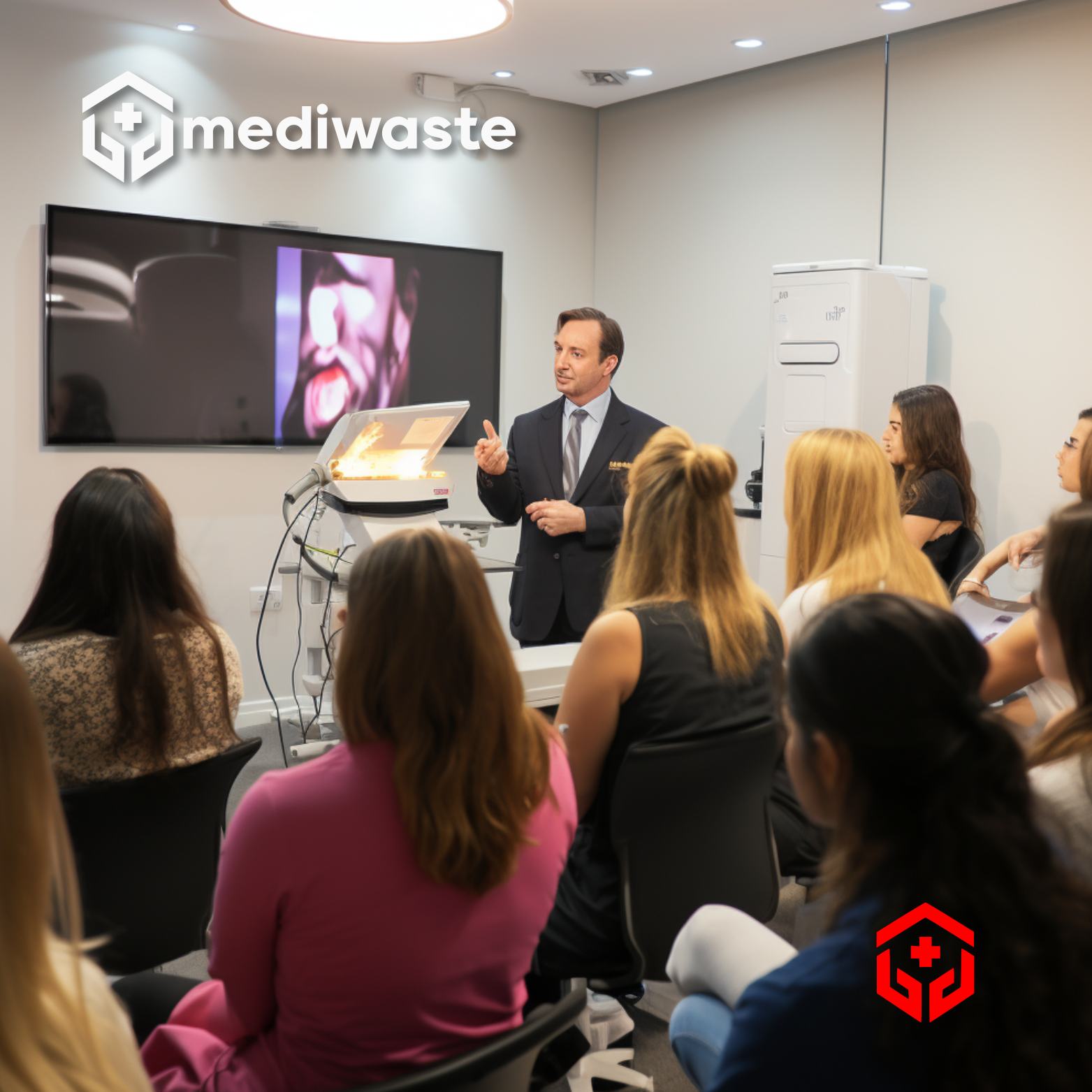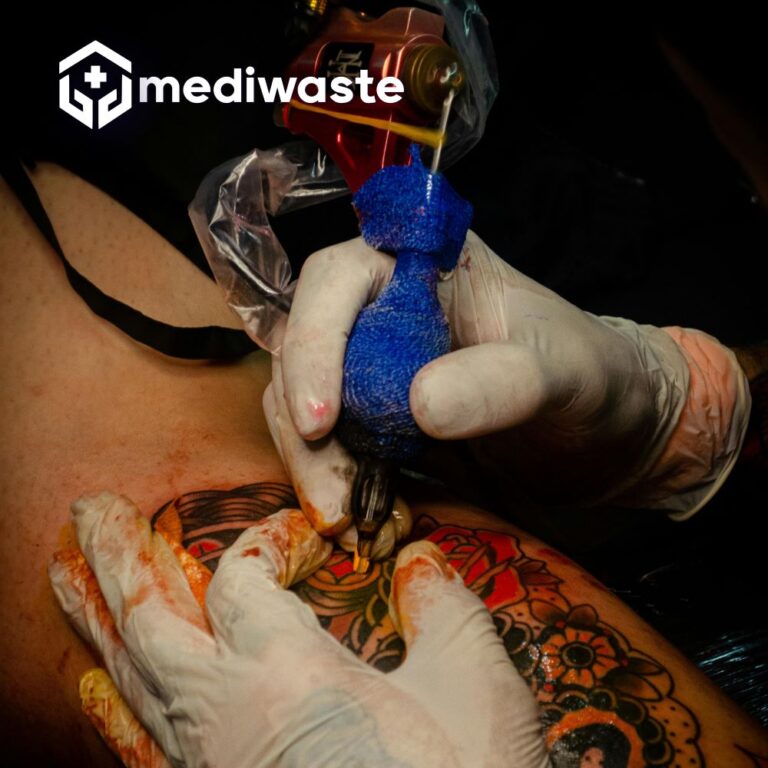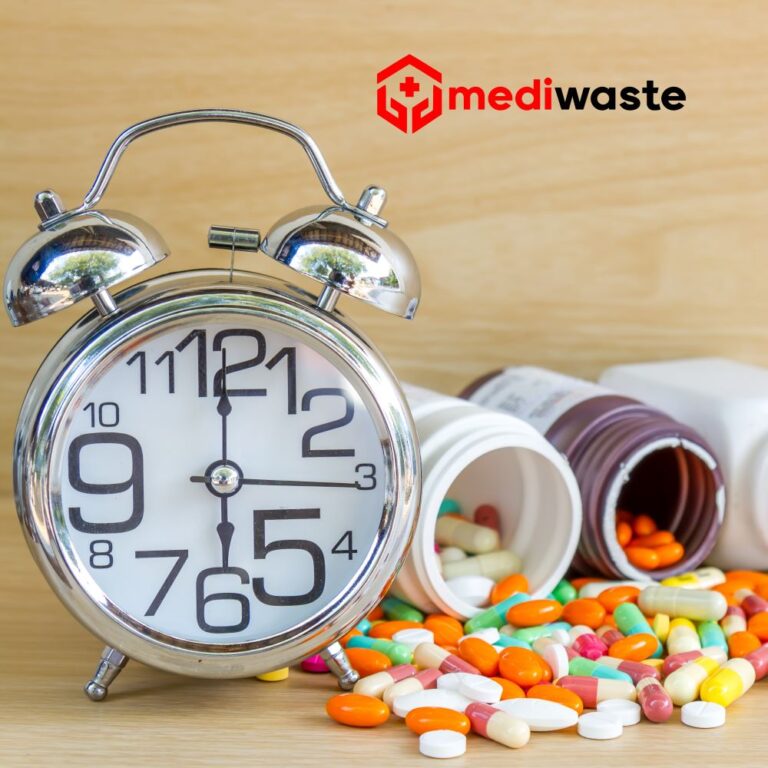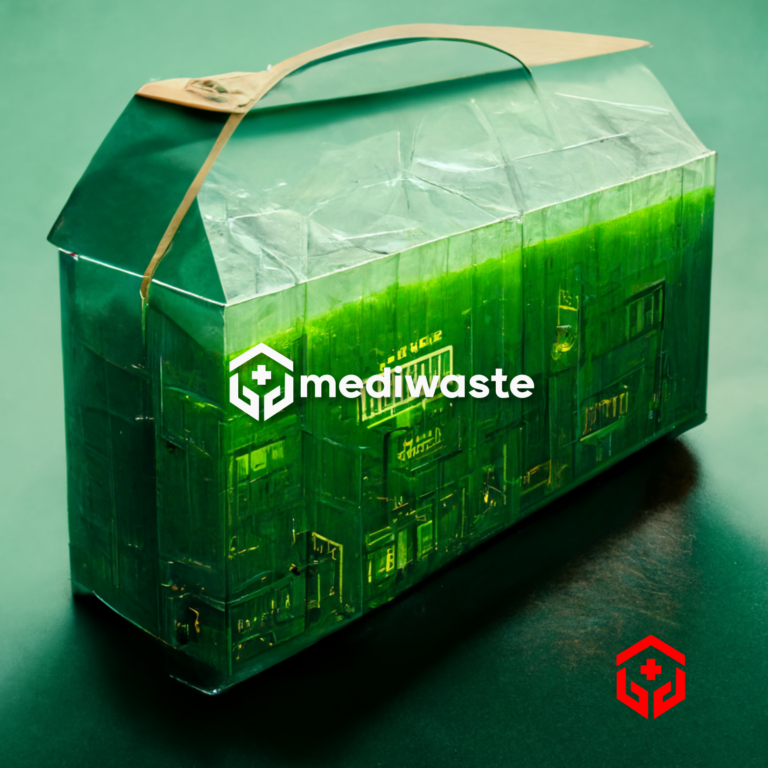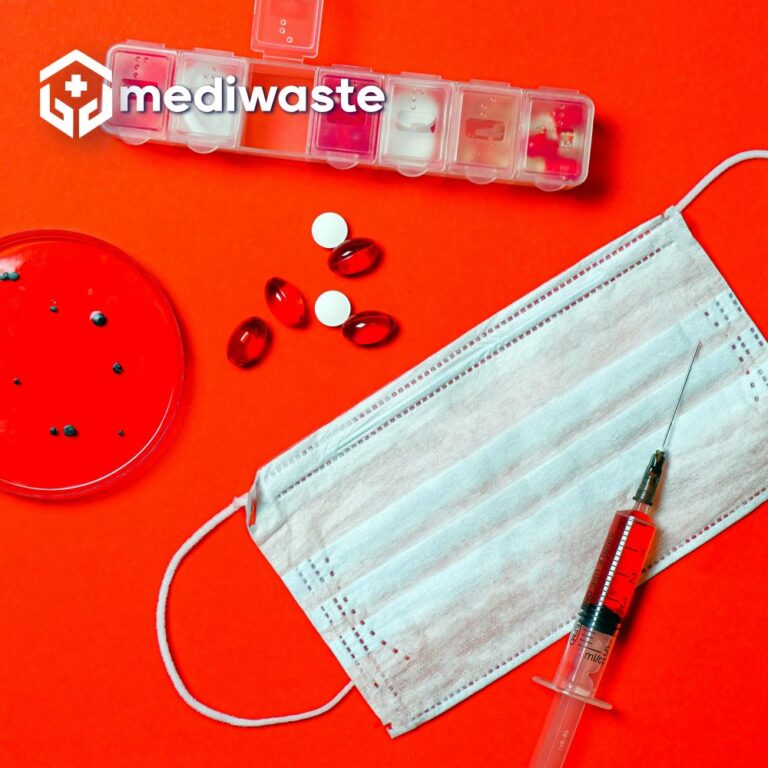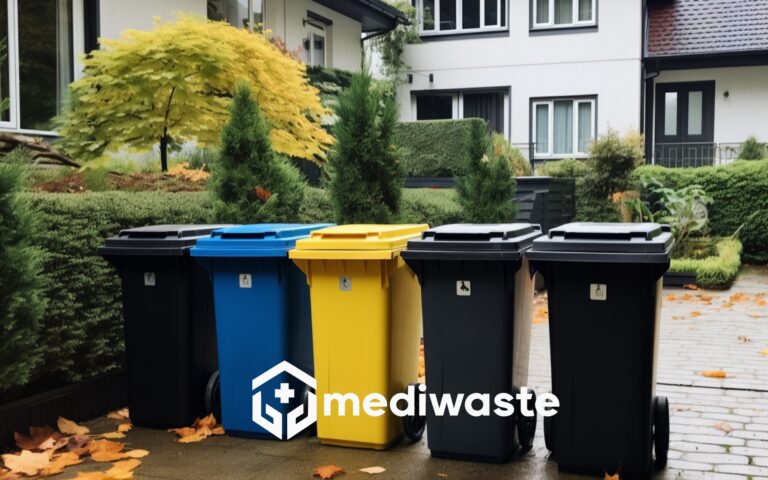Training Staff on Medical Waste Handling in a Beauty and Aesthetics Business
Proper medical waste handling is crucial for beauty and aesthetics businesses to ensure safety, regulatory compliance, and environmental protection. Effective staff training is the cornerstone of a successful waste management program. This article outlines best practices for training staff on medical waste handling in beauty and aesthetics settings.

Understanding the Importance of Proper Waste Handling
Beauty and aesthetics businesses generate various types of medical waste, including:
- Sharps (needles, syringes, blades)
- Contaminated materials (gauze, wipes, gloves)
- Chemical waste (from treatments like chemical peels)
- Pharmaceutical waste (expired or unused products)
MediWaste, the leading provider of medical waste management solutions, emphasizes that improper waste handling can lead to serious consequences, including:
- Infection transmission
- Needle-stick injuries
- Environmental contamination
- Regulatory non-compliance and fines
Key Components of Staff Training
1. Waste Classification and Segregation
Train staff to properly identify and segregate different types of waste:
- Use the Department of Health and Social Care (DHSC) color-coding system for clinical waste
- Provide clear guidelines on what constitutes each waste type
- Use visual aids and hands-on demonstrations for effective learning
MediWaste offers comprehensive training materials and on-site demonstrations to help staff understand proper waste classification and segregation.
2. Proper Use of Waste Containers
Educate staff on the correct use of waste containers:
- Explain the purpose of each container type (e.g., sharps containers, clinical waste bags)
- Demonstrate proper container placement in treatment areas
- Teach staff to never overfill containers and to securely close them when full
3. Personal Protective Equipment (PPE)
Train staff on the importance and proper use of PPE:
- Identify which PPE is required for handling different waste types
- Demonstrate correct donning and doffing procedures
- Emphasize the importance of hand hygiene
4. Handling and Transportation Procedures
Instruct staff on safe waste handling and transportation within the facility:
- Teach proper lifting techniques to avoid injuries
- Explain designated routes for waste transportation
- Emphasize the importance of never compressing or compacting waste
MediWaste provides guidance on setting up efficient and safe waste handling procedures tailored to your facility’s layout.
5. Spill Management
Prepare staff to handle waste spills effectively:
- Develop a clear spill response protocol
- Conduct regular spill drill exercises
- Ensure spill kits are readily available and staff know how to use them
6. Documentation and Record-Keeping
Train staff on proper documentation practices:
- Explain the importance of maintaining accurate waste disposal records
- Teach staff how to complete waste transfer notes and other required documentation
- Implement a system for reporting any waste-related incidents or concerns
MediWaste offers digital tracking solutions to simplify documentation and ensure accurate record-keeping.
Training Methods and Best Practices
1. Initial Comprehensive Training
Provide thorough initial training for all new staff:
- Cover all aspects of waste management relevant to their role
- Include both theoretical knowledge and practical skills
- Assess understanding through tests or demonstrations
2. Regular Refresher Courses
Conduct periodic refresher training:
- Schedule annual or bi-annual refresher sessions
- Update training content to reflect any changes in regulations or procedures
- Use these sessions to address any observed issues or concerns
3. On-the-Job Training
Implement a mentoring system for hands-on learning:
- Pair new staff with experienced team members
- Encourage ongoing dialogue about waste management practices
- Provide opportunities for supervised practice
4. Use of Multimedia Resources
Incorporate various training tools:
- Create instructional videos for visual learners
- Develop interactive e-learning modules
- Use posters and infographics as constant visual reminders
MediWaste provides a range of multimedia training resources that can be customized for your facility’s needs.
5. Encourage Open Communication
Foster an environment where staff feel comfortable asking questions:
- Hold regular team meetings to discuss waste management
- Implement a system for anonymous feedback or concerns
- Recognize and reward good waste management practices
Measuring Training Effectiveness
Regularly assess the impact of your training program:
- Conduct periodic waste audits to identify areas for improvement
- Monitor incident reports related to waste handling
- Gather feedback from staff on the training program
- Track key performance indicators (KPIs) related to waste management
MediWaste offers professional audit services to help evaluate your training program’s effectiveness and identify areas for improvement.
Conclusion
Effective staff training on medical waste handling is essential for maintaining a safe, compliant, and environmentally responsible beauty and aesthetics business. By implementing a comprehensive training program that covers all aspects of waste management and using a variety of teaching methods, you can ensure that your staff are well-equipped to handle medical waste properly.
MediWaste is committed to supporting beauty and aesthetics businesses in implementing effective waste management training programs. Our comprehensive services, expertise in regulatory compliance, and innovative training solutions make us an ideal partner for businesses looking to improve their waste management practices and ensure ongoing compliance.
Contact MediWaste
For expert guidance on developing and implementing a staff training program for medical waste handling in your beauty and aesthetics business, contact MediWaste today. Our team of specialists can provide tailored training solutions to help your facility optimize its waste management practices, ensure regulatory compliance, and minimize environmental impact.
Whether you’re looking to improve your current training program or implement a comprehensive new system, MediWaste has the expertise and resources to support your goals. Reach out to us to schedule a consultation and take the first step towards more effective, compliant, and sustainable medical waste management in your beauty and aesthetics business.

